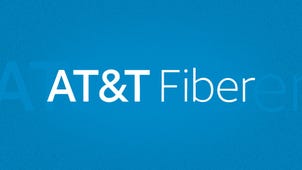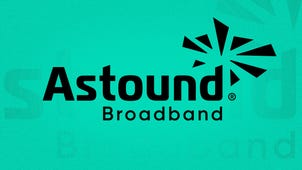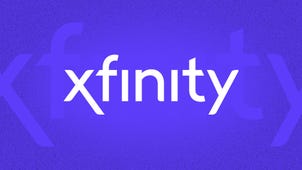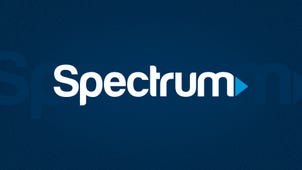
AT&T Fiber – Best cheap internet provider
- Prices: $55 – $250 per month
- Speeds: 300 – 5,000Mbps
- Key Info: Unlimited data, no contracts, equipment included

Astound – Best cheap introductory rates
- Prices: $20 – $80 per month
- Speeds: 100 – 1,200Mbps
- Key Info: Unlimited data, low promo prices, no contracts

Frontier Fiber – Cheapest fiber plan
- Prices: $50 – $155 per month
- Speeds: 500 – 5,000Mbps
- Key Info: Unlimited data, no contracts, no equipment fee

Mediacom – Best cheap ISP for rural areas
- Prices: $25 – $80 per month
- Speeds: 100 – 1,000Mbps
- Key Info: Up to 6TB monthly data allowance, low introductory rates, no contracts

Xfinity – Best cheap cable ISP
- Prices: $20 – $120 per month
- Speeds: 75 – 2,000Mbps
- Key Info: Data caps on some plans, lots of plan options, solid customer satisfaction numbers

Cox Communications – Best cheap prepaid internet plan
- Prices: $40 – $100 per month
- Speeds: 25 – 2,000Mbps
- Key Info: 1.25TB monthly data allowance, lots of plan options, unique gaming add-on

Spectrum – Best for low fees
- Prices: $50 – $90 per month
- Speeds: 300 – 1,000Mbps
- Key Info: Unlimited data, simple pricing, no contracts, modem included, free access to nationwide Wi-Fi hotspots
What’s the best cheap internet provider?
Finding an internet service that’s both affordable and fast enough to keep up with your needs is a challenge. For the best selection of value and speed, I’d recommend AT&T Fiber, which is also CNET’s pick for the best fiber internet provider overall.
I’ve written dozens of internet service provider reviews and local guides over the last six years as a broadband service journalist, all to help you navigate a complex marketplace and find the best option for you. So, I feel the pain of navigating all the different options and tradeoffs.
To be clear, AT&T Fiber isn’t the outright cheapest ISP, however. If you’re looking for the absolute cheapest internet rates, check out Astound, Xfinity or other providers known for their low introductory pricing. Another option could be the good deal with Frontier Fiber’s competitively priced 500Mbps plan.
I recommend the cheap ISPs featured below based on their competitive pricing along with nationwide availability and budget-friendly perks such as unlimited data or low equipment costs. Keep in mind that provider availability and the plans they offer vary by location, so you’ll need to look up service options using your address for the most accurate and up-to-date options. Finally, all prices referenced include applicable discounts for setting up monthly automatic payments — a standard industry offering.
Cheapest internet providers of 2023
More often than not, fiber internet is going to deliver the best bang for your buck. AT&T Fiber plans are a great example, with symmetrical (or close) download and upload speeds of 300, 500 and 1,000Mbps starting at $55, $65 and $80 a month, respectively.
Astound’s speed tiers, pricing and special offers vary quite a bit from one market to the next, but one thing they all have in common is that they’re cheap. Customers in New York City or Boston, for example, can get speeds up to 300Mbps starting at $25, or up to 600Mbps for just $15 more. Starting prices even go as low as $20 in places like Evansville, IN.
Going with a cheap plan can sometimes mean sacrificing speed, but not with Frontier Fiber. Its cheapest plan comes with symmetrical upload and download speeds of up to 500Mbps starting at just $50 monthly. Your equipment rental and unlimited data are also included in the price.
Mediacom doesn’t boast the same customer reach as larger competing cable providers such as Spectrum or Xfinity, but that can largely be attributed to the internet provider’s service areas. Residents of rural areas throughout the Midwest and South as well as parts of Arizona and California can rely on Mediacom for cheap broadband service starting at around $20 a month for speeds up to 100Mbps.
Xfinity speeds and pricing vary by market, but the cheapest plan you’ll find from the provider is Xfinity Connect. At $20 to $30 per month depending on your location for download speeds up to 75Mbps, it isn’t the best internet deal you’re likely to find, but it is one of the cheaper broadband options available throughout much of the US.
Standard Cox internet plans are priced a bit on the high side. In fact, the cheapest internet plan from Cox has one of the highest costs per Mbps of any plan featured on this list.
Spectrum has one of the highest-priced internet plans on our list, but the provider makes up for it with fast download speeds — up to 300Mbps or 500Mbps in select areas — and cheap Wi-Fi equipment fees. Spectrum internet service comes with a free modem and the router rental fee is only $5 per month.
Top cheap internet plans
Show more (3 items)
What to consider when shopping for cheap internet
There’s more to the cost of internet than just the advertised price. Here are some other factors you’ll want to consider before signing up for the absolute cheapest plan.
- Speeds: Will the lowest-priced plan deliver the speeds that you need? If not, explore other providers or upgrade to a faster, more expensive plan. You may find that opting for a slightly more expensive plan could significantly boost your internet speeds and make for a better overall experience.
- Added costs: Taxes are to be expected with any internet service, but added costs for equipment rental, data overages, installation and more will vary by provider.
- Contracts and price increases: Getting locked into a contract with your ISP can be costly, especially if the plan price increases before the service agreement is up. Canceling before the contract expires can also result in early termination fees. Additionally, many providers increase the price after 12 months of service with or without a contract. If you plan on keeping your service past the 12-month mark, be aware of what the monthly costs may be down the road.
How we evaluated the cheapest internet providers
CNET’s process for reviewing and recommending internet providers involves extensive research of everything one would need to make an informed decision regarding the best ISP for their needs.
We start by referencing the Federal Communications Commission to determine a provider’s national coverage and specific regions of operation, as well as the technology they use to deliver service.We then gather and verify pricing and speed information along with what are often lesser-known or “fine print” considerations, such as data caps, contract requirements and equipment fees.
We also take into account customer satisfaction reports from the American Customer Satisfaction Index and J.D. Power, when available, and the frequency of outages and complaints filed on sites like downdetector.com and the Better Business Bureau.
I relied on these considerations and others, including average cost per Mbps and scheduled price increases after one year, when compiling our list of the best cheap internet providers.
See our guide to how CNET reviews internet service providers for more information about our review process.
Cheap internet honorable mentions
These national providers also have broadband service starting at or below $50 a month, but did not make our list of the best cheap ISPs due to high cost per megabit per second, inconsistent pricing or limited service areas.
- HughesNet: Satellite internet offers unrivaled availability, but the high latency and data caps that come with it make HughesNet’s Gen5 plan not worth the cost of $50 a month for speeds up to 25Mbps.
- Kinetic by Windstream: A solid choice for home internet in rural areas, Kinetic by Windstream has broadband plans with unlimited data starting at $30 to $40 per month. Pricing and available speeds can vary widely by location, however, so the available cheap internet plans will depend on where you live.
- Verizon Fios: The cheapest Verizon Fios plan, with speeds up to 300Mbps starting at $50 per month, offers plenty of value. The midtier plan (up to 500Mbps starting at $70 per month) and gig service (starting at $90 per month) aren’t bad deals, either, but you may be able to find faster speeds for the money from other providers.
- Ziply Fiber: Regional provider Ziply Fiber has some of the fastest speeds you’ll find from any ISP, not to mention the lowest introductory pricing. The cheapest plan starts at $20 per month ($40 after 12 months) for the recently raised max speeds of 100Mbps.
What’s the final word on the best cheap internet providers?
The cost of internet varies by provider and location, but we feel most will find AT&T Fiber to be the best bet for cheap internet. While the ISP doesn’t have the lowest starting price in many areas, customers won’t have to worry about equipment fees inflating the cost or a steep price hike after 12 months of service.
For the absolute cheapest internet service, look to providers such as Astound, Mediacom and Xfinity, but keep in mind the low pricing may come with a looming price increase, added equipment rental fees, contracts and data caps, depending on the provider and where you live.
Cheap internet FAQs
What’s the cheapest internet available?
Dial-up is the cheapest internet connection available, with plans starting under $10 a month from providers such as AOL, EarthLink and NetZero. In spite of the low cost, we wouldn’t recommend dial-up service. Dial-up speeds are painfully slow and will not support a Wi-Fi connection or nearly any online task more demanding than sending an email.
Another phone-based internet service, DSL is a popular go-to for cheap internet. Providers like AT&T, CenturyLink and Kinetic offer DSL plans ranging from $50 to $55 a month, but these plans typically come with slower, possibly sub-broadband speeds.
Cable and fiber internet are likely to be your best cheap internet options. While plans can be a bit more expensive than dial-up or DSL service, the speeds and connection quality that you get are well worth the added cost.
What cheap internet options are available to low-income households?
The Affordable Connectivity Program grants qualifying households up to $30 per month ($75 for those on tribal lands) to apply towards home internet service.
In addition to the ACP credit, many providers including AT&T, Cox, Spectrum and Xfinity, offer discounted plans specifically for low-income households. These plans typically cost $30 or less — making them essentially free when combined with the ACP credit — and offer speeds around 50 to 100Mbps.
Why is my internet bill increasing every year?
Internet providers often advertise introductory pricing, or a lower rate of service available to new customers for a limited time, often one to two years. After the introductory pricing ends, the monthly service rate may increase by as much as $30 or more, depending on the provider and offer you choose.
Most providers also have a “price lock” or price guarantee for a limited time, even if there is no special discounted rate. After the price guarantee period ends, providers are free to raise your rates at any time, for any reason. Price hikes may be necessary to support ongoing network maintenance and expansion or offset rising operation costs.
If your internet bill continues to go up, year after year, consider calling your ISP to see if you can negotiate a better price. Otherwise, you may want to explore other internet options in your area to find a better rate.
How can I save money on my monthly internet bill?
What’s the cheapest internet for seniors?
Seniors with limited income may qualify for a discounted internet plan and assistance from the Affordable Connectivity Program.
Many providers offer a low-cost internet plan, typically with speeds ranging from 30 to 100Mbps, for around $30 or less per month. AT&T, Cox, Spectrum, Xfinity and others have their own discounted internet plans designed to help keep those in low-income households, including seniors, connected.
When combined with the ACP credit ($30 per month for qualifying households to apply towards home internet service) such low-cost internet plans may be available for a net cost of $0 per month.
What is the Affordable Connectivity Program and how long will it last?
The Affordable Connectivity Program is a federal initiative to help those in low-income households afford a broadband connection. The program grants qualifying applicants $30 per month ($75 for those on tribal lands) to apply toward home internet service.
For more information and instructions on how to apply, check out CNET’s guide to the Affordable Connectivity Program.

